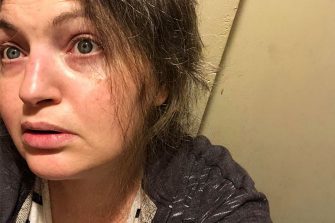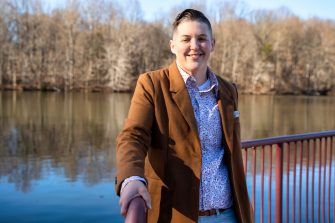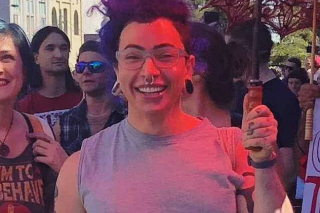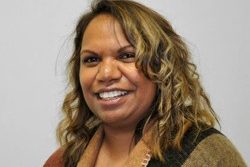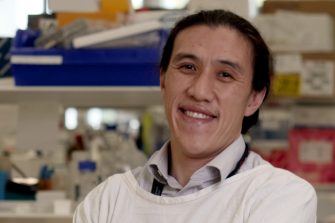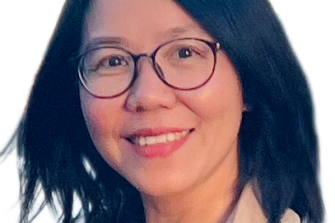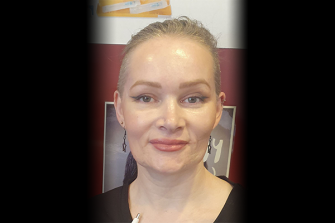Tackling Stigma Conference
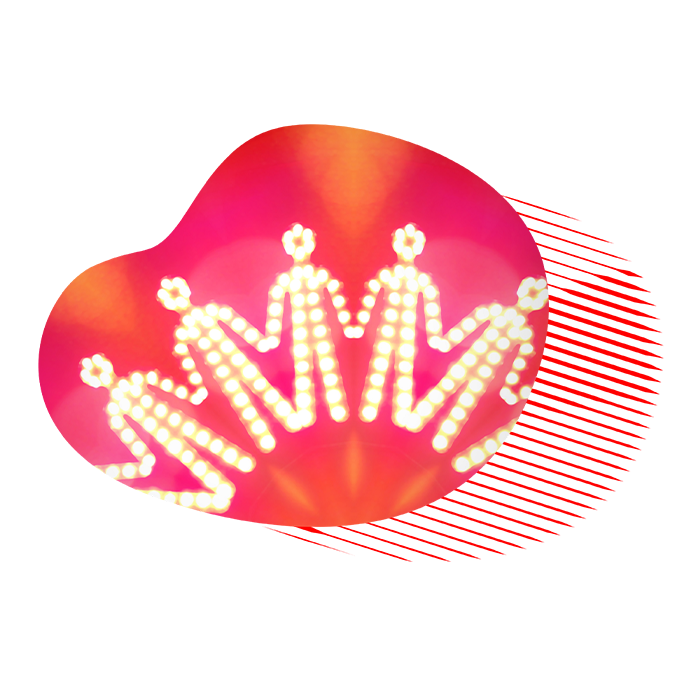
Overview
Tackling Stigma Conference will focus on cross cutting approaches to understanding and addressing stigma, promote conversations and debate regarding systemic and structural issues that contribute to experiences of stigma in health care settings, and discuss novel strategies to overcome stigma as a barrier to health care. Along with international and domestic keynote speakers, concurrent presentation sessions, a speed networking event, and an evening function, the conference will have a panel discussion that will include people with lived / living experience and cover a range of issues which address intersectional stigma and how that impacts health care access and uptake.
Registration is now closed.
Before attending, we encourage you to review the documents below (links will open in a new tab):
As attendees and presenters,
the Tackling Stigma Conference welcomes:
- Health clinicians and practitioners, including peer workers
- Researchers and academics
- People with lived/living experiences of a variety of identities, practices, and health conditions that may be stigmatised
- Policymakers and advocates
- Community organisations and representatives
- Others interested in overcoming stigma as a barrier to healthcare

A new conference focused on stigma research & interventions

UNSW Sydney

21-22 November 2024
About
The Centre for Social Research in Health was established in 1990. Our work makes a crucial contribution to the Australian response to blood-borne viruses and sexually transmissible infections by examining the social aspects of HIV, viral hepatitis, injecting drug use, sexual health. sexuality and education, substance use and mental health, and the health of Aboriginal and Torres Strait Islander Australians. We work closely with national and international researchers, community organisations and community advocates, and with government and state bodies (including health departments). Our work is underpinned by a core principle of engaging people with lived and living experience of the wide range of attributes, identities, conditions, and practices that we study.
We are launching the Tackling Stigma Conference in 2024, which will focus on cross cutting approaches to understanding and addressing stigma, promote conversations and debate regarding systemic and structural issues that contribute to experiences of stigma in health care settings, and discuss novel strategies to overcome stigma as a barrier to health care. This conference is guided by an organising committee based at the Centre for Social Research in Health. In keeping with our commitment to centring communities affected by stigma and discrimination, we are also guided by an advisory committee comprised of people with lived and living experience of stigma and discrimination related to a wide range of attributes, identities, conditions, and practices.
Stigma may be understood in many ways. We have provided one definition of stigma below for your reference.
Stigma is a social process whereby people are excluded or treated differently based on attributes, conditions, identities, and practices that are judged or viewed negatively by members of society. Stigma involves the exercise of power and control to devalue certain groups of people. Many people can experience intersecting forms of stigma, with other forms of stigma related to social identities like race, gender, sexuality, and class. Stigma can occur at multiple levels: structural (e.g., in laws, public opinion, media), organisational (e.g., through policies and practices), individual (e.g., through behaviour and language), and intrapersonal (e.g., in beliefs of self-worth). Discrimination refers to how stigma is manifested, such as through negative actions, behaviours, or speech towards people based on those attributes, conditions, identities, and practices. Stigma and discrimination have significant negative health and social impacts on affected people and communities and on costs to the health system.
Conference Topics and Themes
- Barriers to health care, including experiences of self-stigma and stigma in other settings
- Lived / living experience of health care, including experiences of stigma, experiences of high-quality health care, reflections on what health care should look like
- How stigma towards specific behaviours and conditions intersects with other forms of discrimination, such as racism, homophobia, transphobia, sexism, and others
- Research on how stigma manifests in a variety of health care settings and towards a variety of features of identity, behaviours and conditions, including blood-borne viruses, sexually transmissible infections, mental health, alcohol and other drugs, gender and sexuality diversity, among others
- Stigma and discrimination in health care policy and practice
- Identifying and responding to the role that power relations play in producing and perpetuating stigma
- Silence, obvious blind spots, and major gaps in stigma reduction policies and practices, including unconscious bias
- Innovative strategies, programs, or interventions to reduce stigma, promote inclusion in health care settings, and/or overcome other barriers to health care particularly peer-led models of care
- Other strategies, programs, or interventions to promote high-quality care, inclusive care, cultural safety, gender-affirming care, trauma-informed care, and stigma-sensitive practice
We have provided the above topics as a guide only. We will welcome abstracts that more broadly fit within our conference theme of tackling stigma within health care and improving quality of health care provided to priority populations affected by blood-borne viruses and sexually transmissible infections, including people who inject drugs, people who use alcohol and other drugs, men who have sex with men, sex workers, Aboriginal and Torres Strait Islander people, culturally and linguistically diverse communities, people with lived experience of incarceration, LGBTQ+ communities, among others.
We are also interested in cross-cutting and interdisciplinary approaches to understanding and addressing stigma. To begin to move beyond siloed approaches to stigma reduction, and in recognition of the significant work that has been done on mental health stigma including the impending launch of the National Stigma and Discrimination Reduction Strategy by the National Mental Health Commission, we invite people working to address mental health stigma to submit abstracts on their work.
Program and Care Protocol
The conference program and conference care protocol are available at the links below.
(updated 12 November)
Registration
Registration is now closed.
The conference is being held in person at UNSW Sydney, 21 to 22 November 2024.
| Type of registration | Fees (AUD) |
|---|---|
| General early bird admission (up to 25 October 2024) | $380 |
| General admission (from 26 October 2024) | $440 |
| One day general admission | $300 |
| Student admission | $320 |
| One day student admission | $200 |
- Type of registration
- General early bird admission (up to 25 October 2024)
- Fees (AUD)
- $380
- Type of registration
- General admission (from 26 October 2024)
- Fees (AUD)
- $440
- Type of registration
- One day general admission
- Fees (AUD)
- $300
- Type of registration
- Student admission
- Fees (AUD)
- $320
- Type of registration
- One day student admission
- Fees (AUD)
- $200
Tickets can only be purchased by credit or debit card. If you require an invoice prior to purchase, please send an email with your name, organisation, mailing address, and the ticket type that you wish to purchase to stigmaconference@unsw.edu.au, opens in a new window
Note: Refunds will be determined on a case-by-case basis by emailing stigmaconference@unsw.edu.au
No refunds will be processed after 7 November 2024.
Venue
Colombo Building (B16)
High St Gate 4 (entrance on Fig Tree lane)
UNSW Sydney, Kensington NSW 2052
Public transport is available via light rail and bus. For public transport route and payment options see: https://transportnsw.info/trip#/trip, opens in a new window
For information on parking on campus, please see: https://www.estate.unsw.edu.au/getting-here/parking-campus, opens in a new window
All conference spaces within the Colombo Building are wheelchair accessible, and wheelchair accessible toilet facilities are available.
Gender-neutral toilets are available at the venue.
UNSW is located on the unceded territory of the Bedegal (Kensington campus), Gadigal (City and Paddington Campuses) and Ngunnawal peoples (UNSW Canberra) who are the Traditional Custodians of the lands where each campus of UNSW is situated.
Abstract Submission
Abstract submission is now closed.
The Tackling Stigma Conference is now accepting submissions for abstracts. Priority will be given to submissions that emphasise action on tackling stigma, including novel programs, campaigns, and interventions, and that champion and centre lived experience and the voices of those affected by stigma.
Guidelines
Abstracts can be submitted for oral presentations only; there will be no poster presentations or workshops during this conference. Presentations will be 15 minutes with 5 minutes question time. We may also offer shorter presentations of 5-7 minutes for rapid sessions.There are two types of submissions we are accepting and we have provided templates for you to use to create your abstracts:
1. Research Abstract – abstracts on original research findings, case studies, completed projects, and theoretical analyses. Download the template below.
2. Practice and Policy Abstract – non-research based abstracts on programs, community engagement, education, health promotion, and policy. Download the template below.
All abstracts must be submitted directly through our online submissions form below.
- Abstracts must be submitted in English.
- Abstracts must not exceed 300 words, and each abstract must only be submitted once.
- Abstracts should be text only; photos, tables or other images will not be accepted.
- Abstracts for quantitative and qualitative research must be structured, i.e. divided into sections: Introduction, Methods/Approach, Findings, and Implications. These headings are suggestions only and you may use your preferred headings. Please refer to Example 1.
- Non-research related abstracts for presentations that discuss community or health-related programs and practice must also be structured. Please refer to Example 2.
- The abstract will be reproduced directly from the typescript. Corrections cannot be made once the abstract has been submitted. Please proofread carefully before submission.
- Include all authors' names and the name of each institution represented by the authors on your abstract.
- Abstract submissions will be peer reviewed. The Conference Organising Committee will have the final decision on which abstracts are accepted. Authors will be notified of their abstract acceptance status from late August 2024.
Accepted abstracts will be uploaded to the Conference website as part of the program.
If you would like assistance in developing your abstract for submission, please contact stigmaconference@unsw.edu.au
Please note that all presenters will need to register for the conference following acceptance of an abstract or session.
Please contact the conference organisers at stigmaconference@unsw.edu.au if you wish to propose a conference symposium.
Language guidelines
All submissions should aim to use non-stigmatising language. We encourage the use of person-centred and inclusive language throughout your abstract and presentation. Please refer to the following language guides when developing your abstract and presentation.
- Australian Government Style Manual for Accessible and Inclusive Language, opens in a new window
- APA Guidelines for Bias Free Language, opens in a new window
- APA Guidelines for Inclusive Language, opens in a new window
- NADA & NUAA Language Matters, opens in a new window
- Mindframe: Our Words Matter, opens in a new window
- Trans-Affirming Clinical Language, opens in a new window
- Words Matter! INPUD & ANPUD Language Statement and Reference Guide, opens in a new window
- Reconciliation Action Plan: Demonstrating inclusive and respectful language, opens in a new window
- People First Charter, opens in a new window
- Age Positive Language Guide, opens in a new window
- The National Network of Incarcerated and Formerly Incarcerated Women and Girls Language Guide, opens in a new window
- Diabetes Australia: Our language matters , opens in a new window
Scholarships
Scholarship applications are now closed.
We are pleased to announce the availability of community scholarships for people within Australia to attend the Tackling Stigma Conference at UNSW Sydney, 21-22 November 2024. These scholarships are designated for people with lived experience or who are part of communities that have been subject to stigma in health care setting.
The scholarship will cover registration fees. We request that you indicate what other funding you may require to facilitate your attendance, and these will be considered with your application. At this time, we are only able to provide scholarships to people residing in Australia.
The CSRH scholarship program relies on funding from commercial, government, and non-government sources. The scholarship applications are reviewed by the Conference Organising Committee. Commercial sponsors are not involved in or consulted on the scholarship scoring process.
All applicants must complete the application truthfully and advise the Conference Secretariat if their situation changes.
Key Selection Criteria
Applicants must:
- Have lived experience, work with, and/or are part of communities that have been subject to stigma in health care settings. This includes: people living with HIV, viral hepatitis, or mental health issues; people who use drugs; sex workers; people with culturally and linguistically diverse backgrounds, or Indigenous peoples;
- Be engaged in community education, support, or advocacy activities;
- Be aged 18 years or older; and
- Live within Australia.
Assessment of applications
- An assessment panel will review all applications after the closing date, using the above selection criteria.
- Applications received after the specified closing date will not be considered.
- Successful and unsuccessful applicants will be notified in August 2024.
- Unsuccessful candidates will be placed on a wait-list and further offers will be made if scholarship places become available.
Processing of successful applications
- Successful applicants will be notified of the outcome of their application in August 2024.
- Successful applicants will be required to indicate their acceptance within two weeks of being notified
- Once the acceptance form has been completed and signed, the successful candidate will be registered and will receive notification of this
- If the applicant does not accept the offer within two weeks, the offer may be withdrawn and the scholarship may be granted to another candidate.
How to apply
- Read the scholarship application information above including Key Selection Criteria
- Complete the online scholarship application form (available below)
- Please attach to your application an email or letter of support for you to attend the conference from your organisation or an alternative referee.
- Closing date for applications is Wednesday 14th August 2024, applicants will be notified in late August 2024.
FAQ

Our Acknowledgement of Country
UNSW Sydney’s Kensington campus is built on the land of the Aboriginal people. We pay our respects to the Bedegal people of the Eora nation who are the Custodians of this land.
We acknowledge the Aboriginal and Torres Strait Islander peoples, the First Australians, whose lands, winds and waters we all now share, and pay respect to their unique values, and their continuing and enduring cultures which deepen and enrich the life of our nation and communities.

